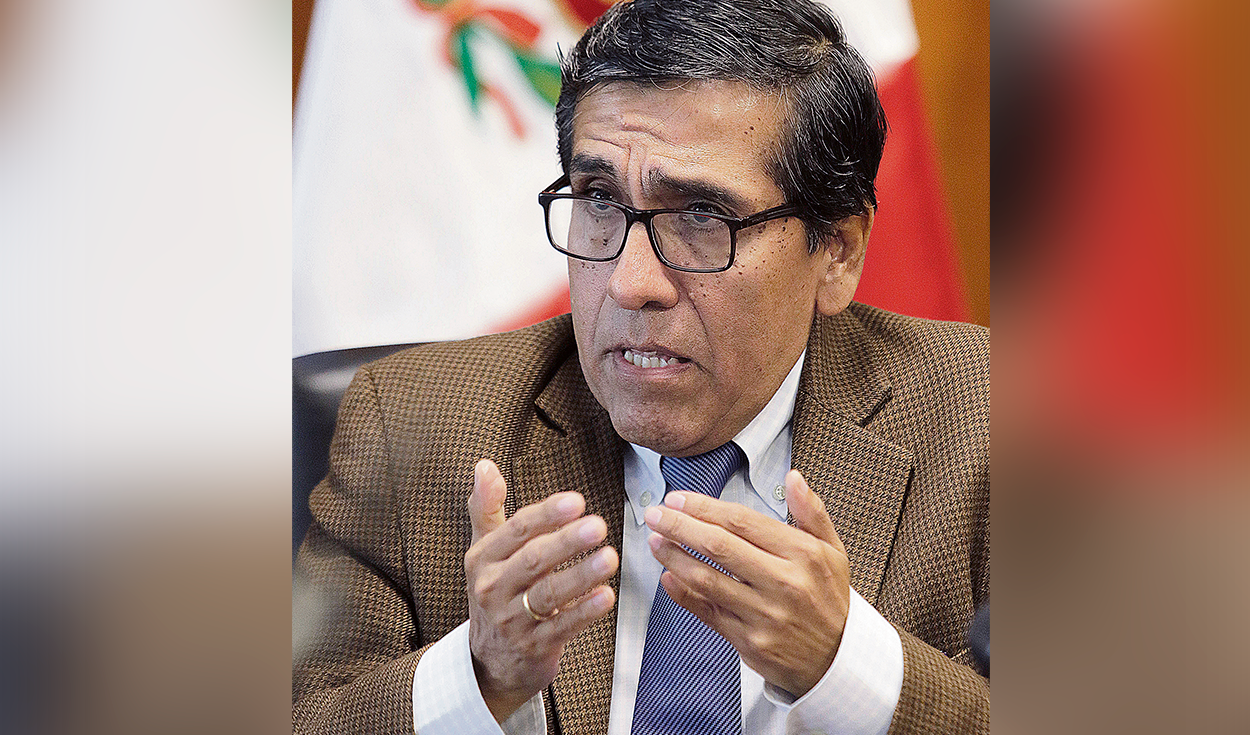
Given the deterioration of economic growth projections due to El Niño and the protests, in a year in which business confidence continues to fail, and with it investments, Arias Minaya reviews the management Boluarte To address these problems, and concludes that it does not have a clear horizon.
— Three years after the pandemic, the indicators are once again alarming. What led us to this situation?
—If one looks at the so-called Peruvian economic miracle, in which we grew more than double the Latin American average, two periods must be distinguished: from 2001 to 2013 and from 2014 onwards. In this second period, GDP grew on average below 3%, excluding the pandemic, and since 2016 it was complicated by political instability. We have had six presidents since then.
—Does it respond, then, to a structural crisis?
—It ended up being ruined with the management of Pedro Castillo, which ended up scaring away private investment and deteriorating public management. What we see today is a structural crisis that will most likely lead us to grow (economically) 0% this year.
—Is it inevitable to reverse the slowdown?
—We see a permanent downward readjustment of (GDP) projections not only by the economic authorities, but also by private analysts. This downward adjustment is not over. We are closer to 0% than 1%. I do not rule out growth very close to 0%.
—Did the Ministry of Economy err on the side of optimism?
—The MEF has a role in maintaining a balance in terms of projections between optimism and credibility, but it seems to me that it has been unrealistic that the -1.3% (drop in July) is part of the statistical error. It has no seriousness.
—You have mentioned that there are three cyclones (climatological, social and political) that have not stopped after 10 months of government. What grade do you give to Boluarte?
—In the climatic part there was no fishing season and the second is at risk; We are also at a very serious point of political tensions with the attempt of the regime, and I say regime because this is an alliance between the Congress and the Executive to dismiss the members of the National Board of Justice. We are at the height of the political conflict. We just had a march and if the tensions continue, the social tensions will worsen.
—How much do you rate it?
—More than a quantitative note, it is a government without economic direction. Without direction in the fight against citizen insecurity and the fight against corruption.
—And we all suffer from it…
—The average citizen feels it in the employment figures. In the second quarter the decline worsened and more than 160,000 Peruvians were left without jobs. Young people are not getting jobs and that is a breeding ground for greater citizen insecurity.
—How does the cooling of GDP affect the risk of falling into poverty?
—We have lower quality employment that affects young people and women, and when this scenario occurs, income decreases. Personal income tax collection figures have fallen to double digits for months. There is weak growth if we see hard consumption data with credit and debit cards. The poverty It is going to increase, I cannot predict by how much, but it is going to be very close to the levels of the pandemic, around 30% of the population.
—Tax collection fell for the seventh month in a row. What does this scenario entail?
—There was excessive optimism on the part of the Sunat regarding last year’s collection figures, which was explained by the high commodity prices of the products we export and import, which paradoxically affect inflation. This year, prices fell due to the economic slowdown that has ended in recession and also due to the exonerations that Congress gave in times of good times. Tax exemptions grew to almost 6 billion soles among those granted to hotels and restaurants without technical support. We must add the disastrous ruling of the Constitutional Court to grant a permanent amnesty to companies that are in dispute with the State for tax debts.
—What complications does collecting less bring? The BCRP has already warned that the limit of the fiscal deficit will be reached.
—We have the perfect storm. When revenue falls, as the MEF already admitted, there is no room for fiscal spending. Public investment has had to contract by double digits in the last two months, and this will most likely worsen the recession.
—Will fiscal rules be broken?
—I don’t think so, unless there is an extraordinary event and to avoid it public investment is contracted.
—The tax reform came to nothing. Where should you aim?
—Peruvian tax pressure is very low, we barely surpass three or four countries (in the region). We need a profound reform that does not raise rates, but rather attacks tax evasion and excessive spending.
Source: Larepublica
Alia is a professional author and journalist, working at 247 news agency. She writes on various topics from economy news to general interest pieces, providing readers with relevant and informative content. With years of experience, she brings a unique perspective and in-depth analysis to her work.











